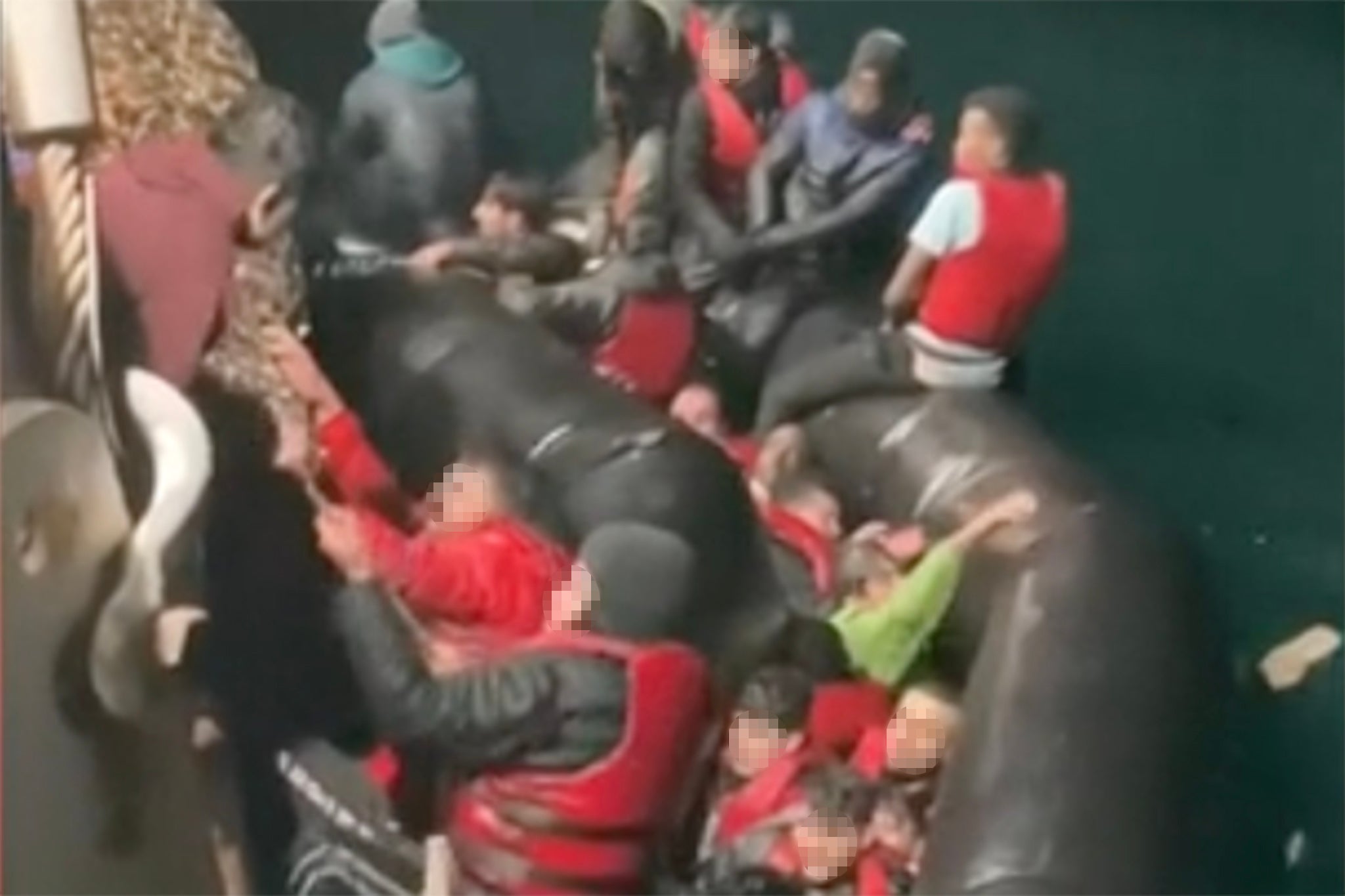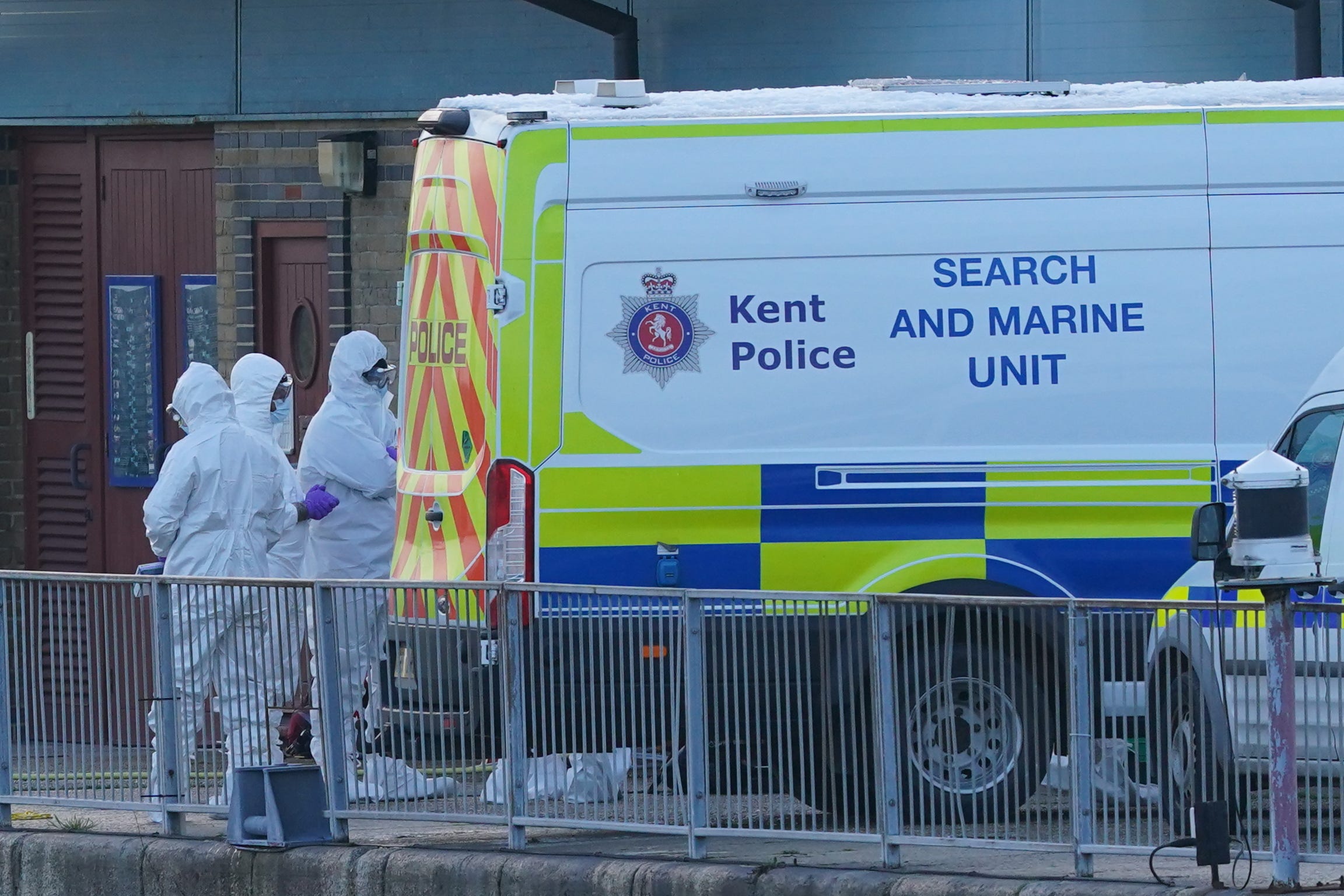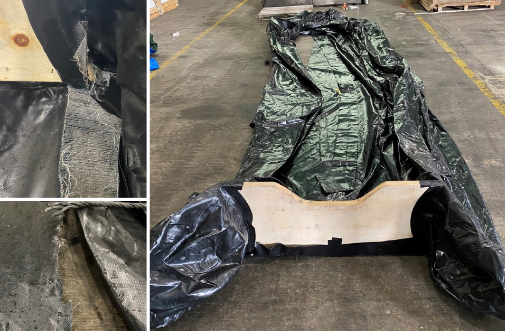‘Please help bro, we are in the water’: Desperate voice note from fatal small boat Channel crossing revealed
Eight people died when a small boat carrying nearly 50 people collapsed in the Channel in December 2022
Your support helps us to tell the story
From reproductive rights to climate change to Big Tech, The Independent is on the ground when the story is developing. Whether it's investigating the financials of Elon Musk's pro-Trump PAC or producing our latest documentary, 'The A Word', which shines a light on the American women fighting for reproductive rights, we know how important it is to parse out the facts from the messaging.
At such a critical moment in US history, we need reporters on the ground. Your donation allows us to keep sending journalists to speak to both sides of the story.
The Independent is trusted by Americans across the entire political spectrum. And unlike many other quality news outlets, we choose not to lock Americans out of our reporting and analysis with paywalls. We believe quality journalism should be available to everyone, paid for by those who can afford it.
Your support makes all the difference.Migrants trapped on a sinking dinghy in the Channel sent a desperate SOS voice note to a French charity, according to an investigation into the tragedy that claimed the lives of eight people.
The report by the Marine Accident Investigation Branch (MAIB) reveals that a French charity, Utopia 56, first raised the alarm with the coastguard after it received a WhatsApp voice note just before 2am on 14 December 2022 from someone on the boat.
It said: “Hello brother, we are in a boat and we have a problem, please help. We have children and family in a boat and water come in the boat and we do not have anything for the children safety.
“Please help bro. Please, please, please, we are in the water. We have a family.”
The investigation found that the occupants of the dinghy could only raise the alarm by mobile phone. The sound of someone “crying loudly” and the sound of an engine could be heard in the background, the MAIB said.
It concluded that the desperate migrants, who were all male and between the ages of 13 and 35, must have lied about children and family being in the dinghy in an attempt to hasten their rescue.

An estimated 47 migrants were plunged into the freezing water of the Channel about three and a half hours into the crossing, after a loud bang signalled a problem with the inflatable boat and water started to flood in.
A rapid deterioration began at around 3am, with the rescue taking place not long after, according to the report.
The floor of the boat effectively collapsed and refugees struggled to stay on board. Footage captured during the incident showed migrants attempting to escape into a UK fishing vessel that had spotted the boat and gone to help. Emergency services rushed to the area and recovered people from the water.
The Maritime Rescue Coordination Centre at Dover was informed at 2.13am that the migrant boat was in distress, via an email from the French charity.
The MAIB report found that the occupants of the boat were all male and aged between 13 and 35. They were refugees from a number of countries, including Afghanistan, Sudan, India, Uzbekistan and Albania.
At least eight migrants died in the tragedy, with the bodies of four victims recovered and the others lost at sea. The MAIB report reveals that only one of the four bodies has been identified and returned to the victim’s family.

The investigation concluded: “The inflatable boat was wholly unsuitable and ill equipped for the crossing attempt and the occupants’ only method of raising the alarm was via mobile phone.”
The MAIB report described how the transom, the wooden wall at the back of the dinghy, was constructed of three sheets of plywood that had been glued and stapled together. It continued: “The fabric floor panel was glued to the tubing and transom and secured in various places with masking tape.”
The boat was “of particularly poor build quality in comparison to other examples that had previously been recovered and examined”.

It found that while some buoyancy aids had been placed in the boat before launch, there were not enough and they were of poor quality, with many missing buckles.
The sea water temperature at the time was 11C, which would have caused the migrants to experience cold water shock when the boat failed. The MAIB concluded that the majority of the migrants survived because of the close proximity of the fishing vessel.

Join our commenting forum
Join thought-provoking conversations, follow other Independent readers and see their replies
Comments